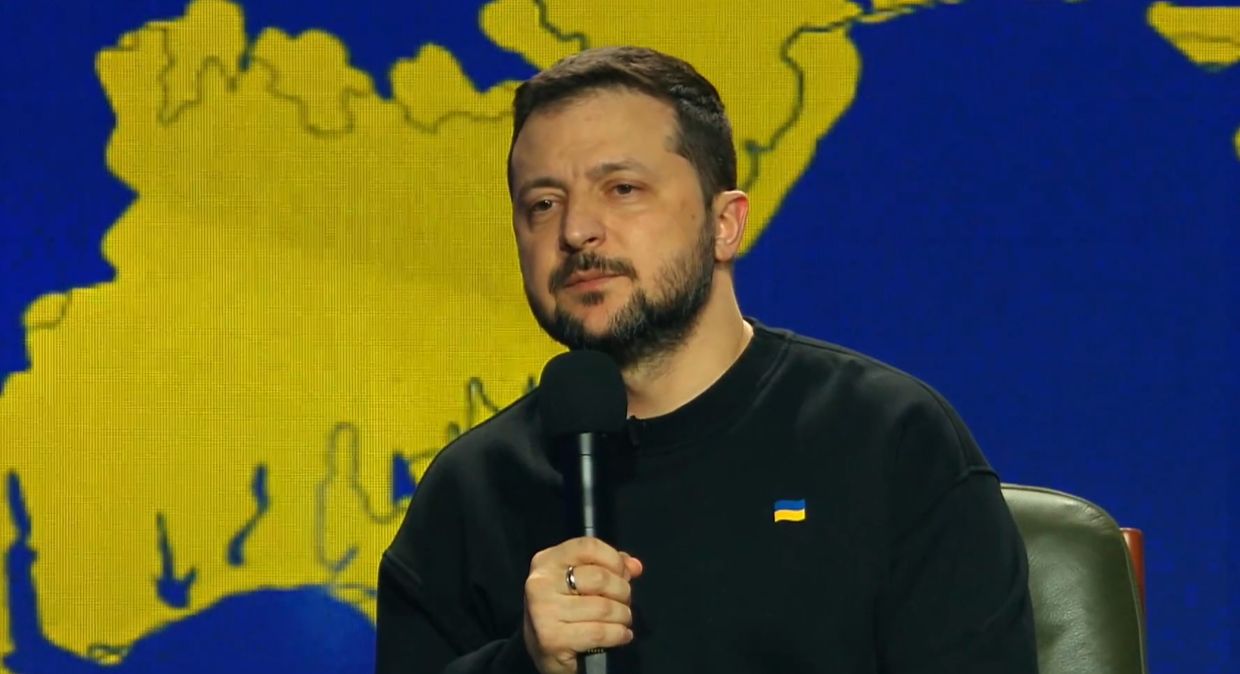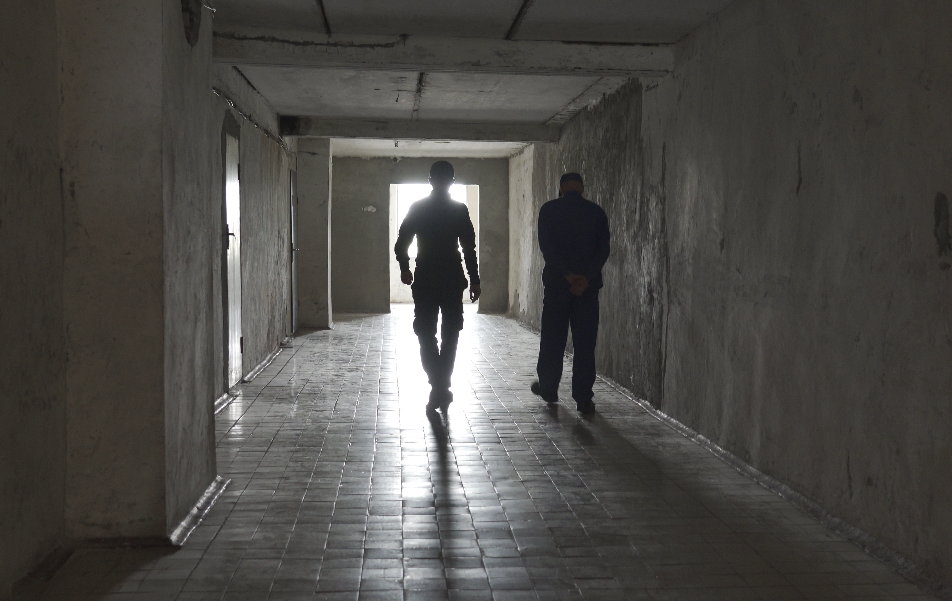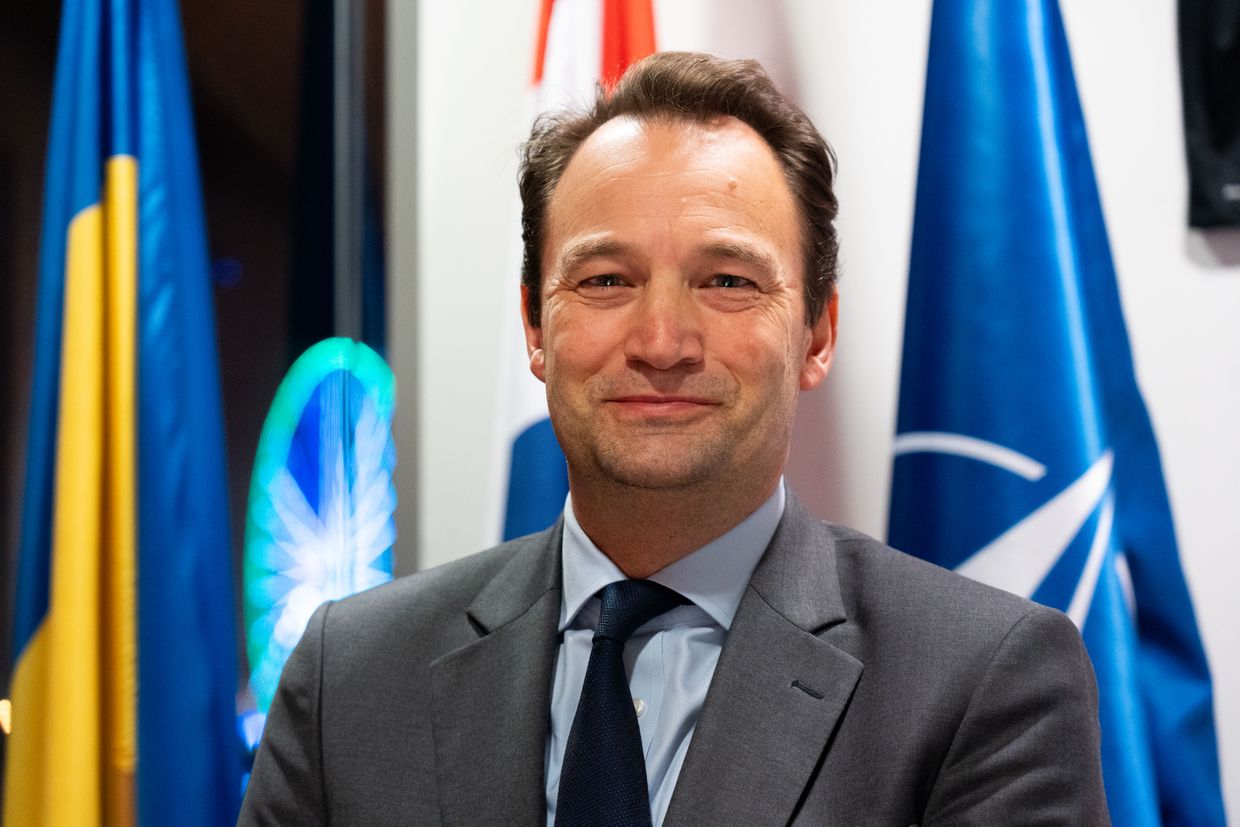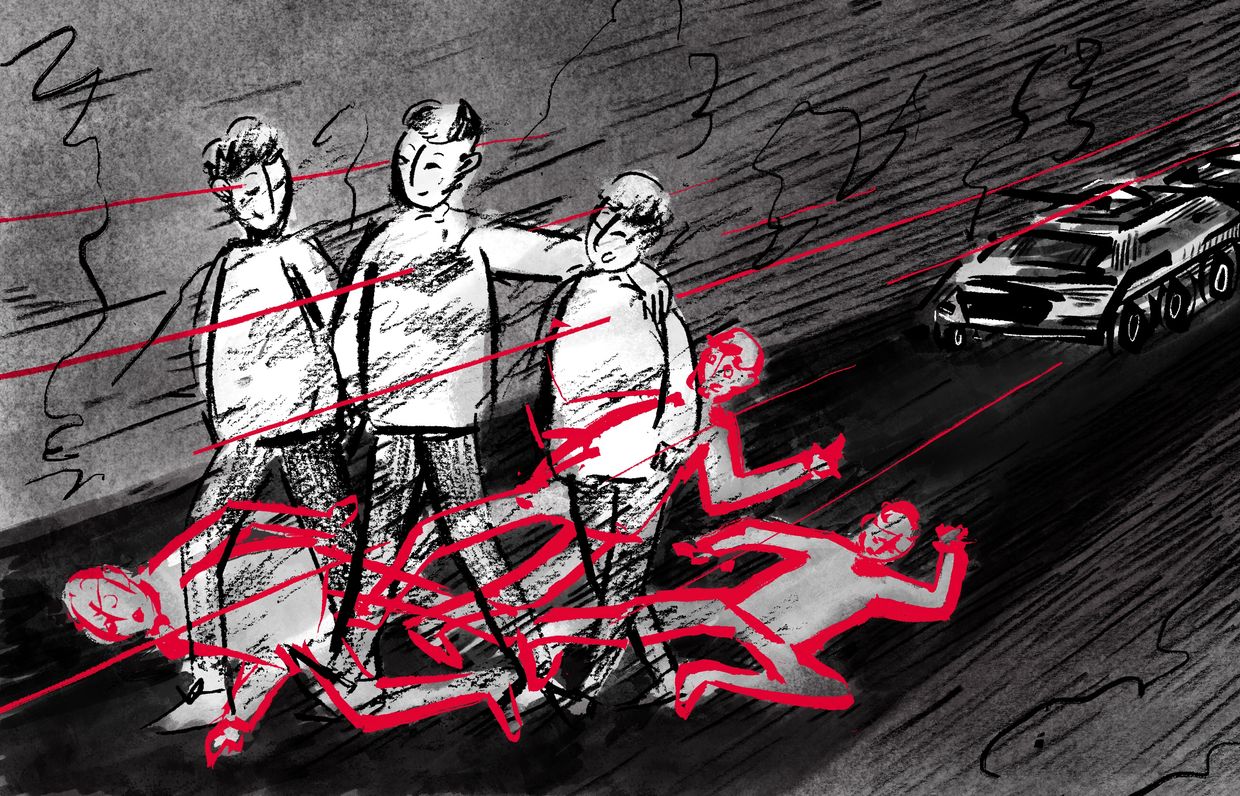Ukraine war latest: Defense minister says he wants to mobilize Ukrainian men living abroad

Key developments on Dec. 21:
- Defense Minister Umerov says he wants to mobilize Ukrainian men living abroad, ministry clarifies he means voluntary mobilization
- Prosecutor's Office: 4 Ukrainians convicted for fighting with Russian forces
- EU sends 1.5 billion euros, the last macro-financial assistance for Ukraine in 2023
- Germany, Switzerland pledge winter aid for Ukraine
- Russian strike on mines in Donetsk Oblast kills 3, injures 6
Ukraine wants to recruit Ukrainian men living abroad for military service, Defense Minister Rustem Umerov said in an interview with German media outlet Die Welt on Dec. 21.
The interview quoted Umerov as saying there may be sanctions for those who won't return to Ukraine to serve in the military.
“We are still discussing what will happen if they don’t come voluntarily,” Umerov said, according to Die Welt.
However, after the interview was published, Defense Ministry press officer Illarion Pavliuk told the Ukrainian media outlet Babel that Umerov's comments had been taken out of context.
He said the ministry wasn't planning to introduce sanctions against the Ukrainian men abroad who don't return and show up at the recruitment offices.
Under martial law, Ukrainian men aged 18-60 are prohibited to leave Ukraine, barring special circumstances. However, as many as 650,000 Ukrainian men of military age had left the country for the EU since the beginning of the full-scale invasion.
President Volodymyr Zelensky said at a press conference on Dec. 19 that the General Staff plans to mobilize 450,000-500,000 new soldiers.
Court sentences 4 Ukrainians fighting on Russia's side
A Ukrainian court sentenced four Ukrainians charged with fighting together with Russian proxy forces against Ukraine to 12 and 15 years in prison, the Prosecutor General's Office said on Dec. 21.
Russia has occupied part of Donetsk and Luhansk oblasts since 2014. While some residents of occupied territories have willingly collaborated with Russia, Moscow has also coerced locals into their ranks.
The four men fought against Ukrainian troops in Donetsk and Luhansk oblasts, and one served Russia in occupied Crimea. Prosecutors found evidence that they had directly fired at Ukrainian forces, and they were convicted of treason and participation in a terrorist organization.
One of the men had served with Russian proxy forces since the beginning of the war in Donbas in 2014.
The prosecutor's office did not specify which men were sentenced to 12 or 15 years.
Ukrainian authorities detained the four men in Pokrovsk and Bakhmut districts of Donetsk Oblast in November 2023.
EU sends this year's last tranche of macro-financial assistance for Ukraine
The EU has sent the final tranche of 1.5 billion euros ($1.6 billion) in macro-financial assistance for 2023, European Commission President Ursula von der Leyen announced on Dec. 21.
The package aims to assist Ukraine with paying for essential public services, maintaining macroeconomic stability, and restoring critical infrastructure destroyed by Russian attacks.
The tranche is part of an 18 billion euro ($19.6 billion) support package for 2023, known as the Macro-Financial Assistance (MFA) package for Ukraine, which was disbursed monthly throughout the year.
“We must find an agreement to keep providing Ukraine with the support it needs to recover, rebuild and reform,” said von der Leyen.
Hungary blocked a 50 billion euro ($55 billion) package from the EU on Dec. 15, prompting EU leaders to strategize about how to overcome Hungary's obstructionism.
The European Council will reconvene in February to discuss the funding package.
While EU leaders said they would prefer to reach an unanimous decision, von der Leyen noted that alternative options are also considered in case Hungary continues to block the plan.
“It is also necessary to work on potential alternatives to have an operation solution... if unanimity is not possible,” von der Leyen noted.
French President Emmanuel Macron also voiced confidence that the bloc's remaining members would be able to financially support Ukraine even without Orban's approval.

Germany, Switzerland announce winter aid for Ukraine
Germany and Switzerland announced its winter aid packages for Ukraine.
The combination of cold weather and intensified Russian attacks puts Ukraine's energy sector under heavy strain, especially as Russia intentionally targets critical infrastructure.
As Ukraine prepares for a likely repeat of the strategy, its allies have announced new winter aid packages, including air defense, energy infrastructure equipment, and other measures to help alleviate the combined impact of cold weather and Russian attacks.
Germany will provide Ukraine with an additional 85.5 million euros ($94 million) in aid to help the country endure the winter and withstand Russian attacks on critical infrastructure, the Foreign Ministry announced on Dec. 21.
The funds are jointly procured from the Foreign Ministry and the Economy Ministry and will help pay for spare parts for critical energy infrastructure, repairs, and equipment, such as generators and transformers.
In addition, the funds will be directed towards the "green reconstruction" of Ukraine, helping the country replace outdated equipment with modern, sustainable energy infrastructure.
Moscow attempted during the fall and winter of 2022-2023 to destroy Ukraine's energy infrastructure, which led to frequent blackouts and a lack of heating across the country.
The latest announcement of aid from Germany brings the country's total commitment to supporting Ukraine's energy infrastructure to 218 million euros ($240 million).
Meanwhile, Switzerland announced a new CHF 11.5 million ($13.3 million) winter aid package for Ukraine on Dec. 20, bringing the total of Switzerland's winter assistance to Ukraine to around CHF 26 million ($30 million).
Switzerland allocated CHF 54 million ($62 million) in 2022 through the World Bank for rebuilding in Ukraine, primarily aimed at repairing energy infrastructure damaged by Russian attacks.
Russian strike on mines in Donetsk Oblast kills 3, injures 6
A Russian strike on two mines in Toretsk in Donetsk Oblast killed three civilians and wounded six others, Interior Minister Ihor Klymenko said on Dec. 21.
Toretsk, an industrial front-line town that sits less than 10 kilometers west of the front line, is frequently a target of Russian attacks.
At one mine, two aerial bombs killed one person and injured two others, Klymenko said. There were 32 miners underground who have since been brought to the surface.
Two more aerial bombs hit another mine, killing two people and injuring three others. "Administrative buildings and equipment were damaged," according to Klymenko.
The Donetsk Regional Prosecutor's Office reported that it had started a pre-trial investigation into the war crime. Those killed were men aged 41, 42, and 45 years old.
A Russian air strike on Toretsk on Nov. 28 injured four women working at a workshop and damaged industrial buildings.

















